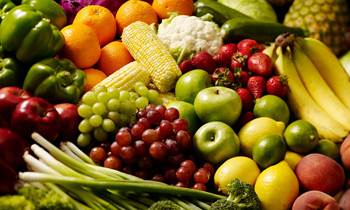Washington, Jul 9: Ayurvedic practitioners and researchers in India and the US are planning to initiate joint clinical trials for Ayurveda formulations against the novel coronavirus, the Indian envoy here has said.
In a virtual interaction with a group of eminent Indian-American scientists, academicians, and doctors on Wednesday, Indian Ambassador to the US Taranjit Singh Sandhu said the vast network of institutional engagements have brought scientific communities between the two countries together in the fight against Covid-19.
“Our Institutions have also been collaborating to promote Ayurveda through joint research, teaching and training programs. Ayurvedic practitioners and researchers in both the countries are planning to initiate joint clinical trials of Ayurvedic formulations against Covid-19,” Sandhu said.
“Our scientists have been exchanging knowledge and research resources on this front,” he said.
The Indo-US Science Technology Forum (IUSSTF) has always been instrumental in promoting excellence in science, technology, and innovation through collaborative activities.
To address Covid-19-related challenges, the IUSSTF had given a call to support joint research and start-up engagements. A large number of proposals are being reviewed on fast track mode by the experts on both the sides, he said.
“Indian pharmaceutical companies are global leaders in producing affordable low-cost medicines and vaccines and will play an important role in the fight against this pandemic,” Sandhu said.
According to the ambassador, there are at least three ongoing collaborations between Indian vaccine companies with US-based institutions.
These collaborations would be beneficial not just to India and the US, but also for the billions who would need to be vaccinated against Covid-19 across the world, he noted.
Asserting that innovation will be the key driver in pandemic response and recovery, he said tech-companies and start-ups have already begun to take the lead in this direction.
"Telemedicine and telehealth will evolve as will other digital platforms across sectors," he said.
Noting that there has been a longstanding collaboration between India and the US in the health sector, he said scientists have been working together in several programs to understand important diseases at the basic and clinical level.
Many such programs have been focused on translational research to develop new therapeutics and diagnostics.
There are over 200 ongoing NIH funded projects in India involving 20 institutions from NIH network and several eminent institutions in India engaged in a wide spectrum of research areas to create health care solutions, the senior diplomat said.
The collaboration under Vaccine Action Program (VAP) resulted in the development of ROTAVAC vaccine against rotavirus which causes severe diarrhea in children.
The vaccine was developed by an Indian company (Bharat Biotech) at an affordable cost. It has been commercialised and introduced in the Expanded Program on Immunisation.
Development of many other vaccines such as TB, Influenza, Chikungunya are also in progress under the VAP, he said.
“As I speak, the VAP meeting is in progress where experts from both countries are deeply engaged in technical discussions to expedite development of Covid-19 vaccine,” Sandhu said in his remarks.
During the interaction, the eminent experts appreciated India's handling of the Covid-19 pandemic and offered their valuable suggestions and best practices in this regard.
They shared their ideas on deepening the knowledge partnership between India and the US.
The experts who took part in the interaction, were drawn from wide-ranging fields including artificial intelligence, quantum information science, biomedical engineering, robotics, mechanical engineering, earth and ocean science, virology, physics, astrophysics, and health sciences.
Prominent among those who attended the virtual interaction were Subhash Kak Regents Professor at Oklahoma State University, Dr Vijay Kuchroo, Samuel L Wasserstrom Professor of Neurology at Harvard Medical School, Dr Ashish M Kamat, Professor of Urology at MD Anderson Cancer Center, Ashutosh Chilkoti, Alan L Kaganov Professor of Biomedical Engineering and Chair of the Department of Biomedical Engineering at Duke University; and Prof Manu Prakash, a professor in Department of Bioengineering at Sandford University, among others.
 They have found that naturally-grown food can potentially tackle depression in as little as two weeks. Researchers from the University of Otago studied 171 adults aged between 18 and 25 about their dietary habits.
They have found that naturally-grown food can potentially tackle depression in as little as two weeks. Researchers from the University of Otago studied 171 adults aged between 18 and 25 about their dietary habits.




Comments
Add new comment